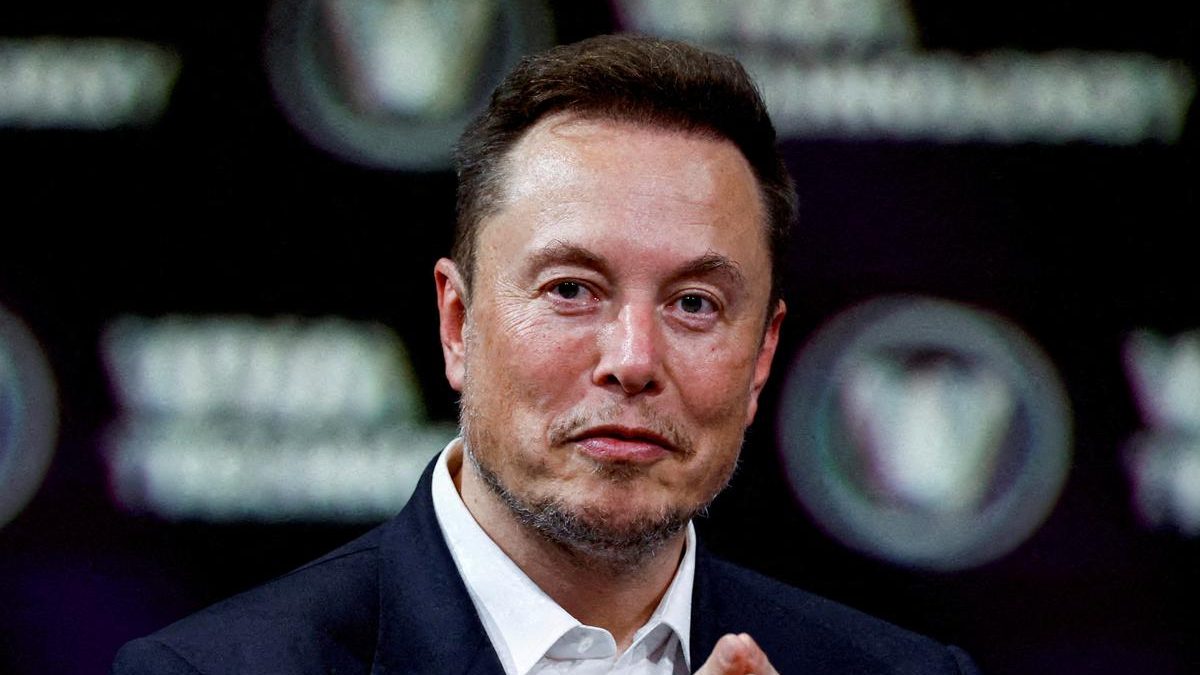X, formerly Twitter, has lost more than half its valuation since the billionaire took over in 2022.
More than a year after Elon Musk acquired Twitter for $44 billion, the platform, now called X, has dropped in value to $19 billion, internal company documents revealed, according to the New York Times.
The company now says its equity would be offered at $45 a share in the form of restricted stock units, despite Musk paying $54.20 a share to buy the platform in 2022, according to a document revealing stock grants to employees on Monday.
X employees will still be paid $54.20 for any outstanding shares granted to them under previous management, the report suggested.
The once applauded platform has undergone several reforms since the Musk purchase with significant changes made both in and outside the company.
Historic changes
Since Musk cut employee jobs by nearly 80 percent, the tycoon has implemented several paid subscription services to make up for his losses.
In line with Musk’s plans of achieving “the everything app,” the mogul has launched Twitter Blue, which indicates that a user is verified through a paid subscription service.
As part of the revamp, Musk has also recently initiated video and voice calls in hopes of turning the digital platform into a WeChat-style “super app” with numerous functions in one site.
“If you’re in China, you kind of live on WeChat; it does everything. It’s sort of like Twitter, plus PayPal, plus a whole bunch of other things. And all rolled into one […] great interface. It’s really an excellent app,” said the South African businessman.
Musk said the initiative will enable users to offer their followers subscriptions to content, including long-form text and hours-long video. However, X will also take a 10 percent cut on content subscriptions after the first year.
After rebranding as X this July, Musk said he is considering charging all users a monthly fee to combat bots.
The subject emerged in a September interview with Israeli Prime Minister Benjamin Netanyahu, in which Musk revealed he was considering charging “a small monthly payment” to all users.
Initially ticketed as a panel conversation about technology and artificial intelligence, the conversation with Netanyahu turned into a discussion on combating antisemitism and hate speech.
:I hope you find within the confines of the First Amendment, the ability to not only stop antisemitism… but any collective hatred of a people,” Netanyahu – who himself heads Israel’s most right-wing and religiously conservative government to date – said during the discussion.
Musk responded that he was thinking of “moving to having a small monthly payment for use of the X system”.
“It’s the only way I can think of to combat vast armies of bots,” the billionaire capitalist said.
“Because a bot costs a fraction of a penny – call it a tenth of a penny – but if somebody even has to pay a few dollars, some minor amount, the effective cost of bots is very high,” he added.
Marc Owen Jones, an associate professor of Middle East Studies at Hamad bin Khalifa University in Qatar and a vocal critique of Musk, said charging all users on X was a “desperate move” that raises concerns about the tycoon’s intentions.
“I think Musk’s planning to charge for Twitter is just a reflection of his desperation. He’s already introduced several levels of charges, including Twitter Blue,” Jones told Doha News.
Jones suggested that Musk was trying to force users into paying but questioned why he would potentially drive people away from the platform if having a free model was crucial for success.
“He’s gradually getting to a point where he’s trying to force people into paying. And the only logic for doing that obviously is revenue,” Jones said.
“I think such companies will have very little success if they don’t have a free model. And I think even Elon Musk knows that, but because the cash flow problem is bad, he’s already scared away,” the associate professor added.
Jones goes on further to imply that Musk may have a desire to destroy the platform itself.
“A more cynical aspect would be that he just wants to destroy the platform, which given the fact that he bought it for too much money and it was a poor business decision, wouldn’t necessarily surprise me, but I think it’s mostly desperation,” Jones told Doha News.







